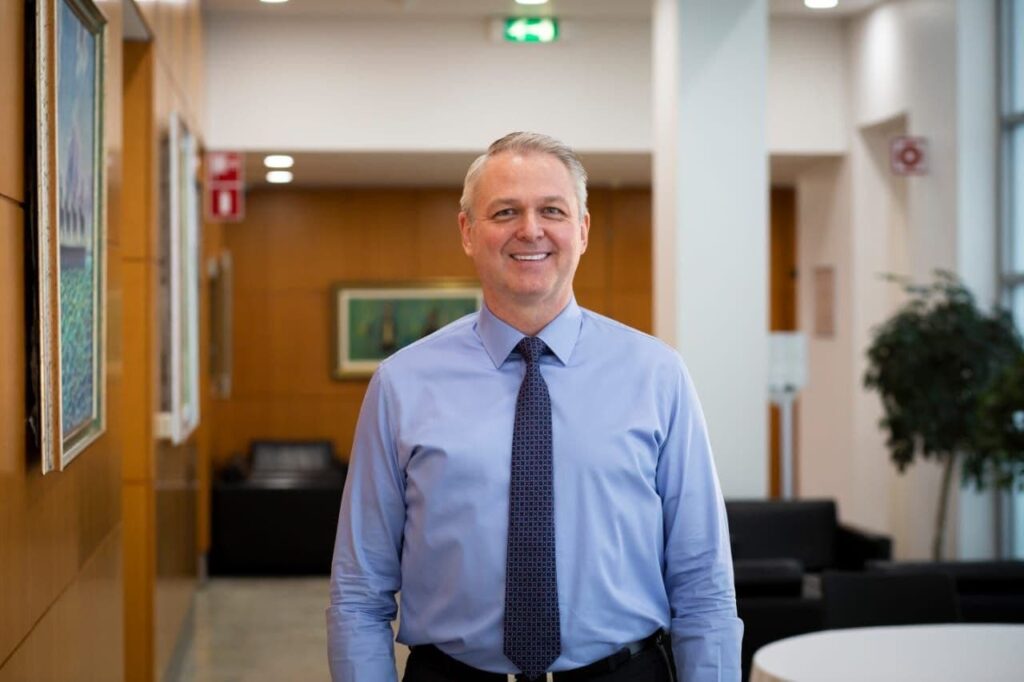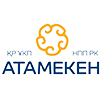
In February 2021, Kevin Lyon was appointed General Director of Tengizchevroil LLP. He replaced the then head of the company, Ymer Bonner, in this position. Previously, Kevin Lyon held a variety of senior engineering and management positions at Chevron in Bangladesh, Indonesia, Nigeria, the Netherlands, the Philippines and the United States. In an interview to Petrocouncil.kz, Mr. Lyon spoke about TCO's plans for the coming years and his previous work experience. The issues of FGP, digitalization and development of local content in the oil and gas industry were also discussed. - Dear Kevin, it is your sixth month as General Director of TCO. What are your plans/priorities over the upcoming years? - First of all, I would like to say that it is an honor to work in Kazakhstan and to be leading such a world class-organization like Tengizchevroil (TCO). The Tengiz field is an incredible asset for the Republic of Kazakhstan’s (RoK) and continues to support the country’ economic growth and development. As we navigate the global pandemic, our main focus remains primarily on protecting the health and safety of our people, ensuring we maintain safe and reliable production operations, and safely delivering TCO’s FGP-WPMP project, for the benefit of all stakeholders. - You have worked in different parts of the world and your previous experience before joining TCO was in Indonesia. Can you tell us more about your background? What is your impression of working in Kazakhstan? - Throughout my 33-year career, I have worked across all major segments of oil and gas business, including downstream refinery projects, midstream pipeline operations and upstream exploration and development. I’ve also had the privilege of serving in a variety of leadership and technical positions in Bangladesh, Netherlands, Indonesia, the Philippines, Nigeria and the United States. Since our arrival to this wonderful country, my family and I have experienced amazing Kazakh warmth and hospitality, and I have been impressed by the resilience of the people during the pandemic. Also, having travelled to Tengiz, I have seen first-hand the incredible skills and talent of our national workforce. It’s clear to me that Kazakhstan’s greatest asset is its people. - Please tell us about the status of the FGP project? Recently, the President of Kazakhstan said that after the FGP project is completed there will be approximately 55,000 unemployed Kazakhstanis. What do you think about it? - With the project currently at 83% completion, we have successfully remobilized the workforce in Tengiz, and the company’s’ vaccination program is progressing. Despite the COVID-19 pandemic challenges The project continues to achieve major milestones. For example, the three-year marine campaign to transport modular cargo from international locations to Tengiz was successfully completed on schedule, all eighty-six pre-assembled modules are on foundation and construction is progressing well in Tengiz. It is important to note that capital projects of this nature have specific start and end dates. So a gradual demobilization of the workforce is expected as work scopes are completed. However, as part of a voluntary initiative to support employment, TCO and the Akimats of Atyrau and Mangystau Oblasts signed an agreement to train 900 Kazakhstani citizens annually in high-demand professions such as electrical fitters, welders, pipe fitters, steel erectors, scaffolders, instrument fitters and civil works specialists. Throughout the implementation of FGP-WPMP, TCO and its business partners trained over 16,000 people. Kazakhstani employees have gained unique work experience, whilst learning how to operate at international standards. They have gained world-class experience and knowledge by participating in projects of this scale. It’s noteworthy, that some of these trained professionals decided to open their own businesses. We have an example of a father and his son who both completed the same courses and opened up a family business to provide welding services. This is a testament to the creativity, entrepreneurial spirit, and hard work of the local community. - Does TCO plan to develop new projects in the near future? What opportunities are there for local companies in this regard? - TCO continues to be the leading company in the country supporting Kazakhstani content. We have invested more than $37.3 billion on Kazakhstani goods and services since 1993. It’s worth noting that TCO’s Kazakhstani content spend has grown significantly on a percentage and actual basis over the last few years. Now with most of the remaining work for FGP-WPMP being done in-country, more than of $11.3 billion has been spent on Kazakhstani goods and services within the FGP-WPMP project, which is creating a positive impact for Kazakhstan’s economy. Recent independent studies have shown that TCO’s economic impact is being felt beyond Atyrau Oblast and positively impacting approximately 50% of the regions in the country. Many of our employees live in these regions and the same study showed that one TCO job typically supports another 39 jobs across the economy. TCO is always looking for opportunities to increase local content where we can. Over the company’s 28-year history, we have successfully signed contracts with thousands of qualified companies in Kazakhstan. On FGP-WPMP alone, we have engaged Kazakhstani entities to participate in engineering, procurement and fabrication services and have pre-screened 2,276 Kazakhstani companies and pre-qualified 1,585 companies. More than 630 contracts have been awarded to Kazakhstani registered companies. - As General Director of TCO will you be committed to local content development? Can you tell us about some results of Kazakhstani content development? - TCO is contiually working to improve Kazakhstani content within our business. Firstly, TCO requires our large strategic suppliers to invest in Kazakhstan and nationalize staff. They have localized products from drilling solvent, remote instrument enclosures, and substations. Secondly, we provide qualification services to identify companies’ ability to meet TCO requirements. In the past year we’ve worked with recycling services, thermal insulation jackets, low and high voltage motor repairs, and many others. Finally, we work with external programs like the European Bank for Reconstruction and Development (EBRD) to provide direct consulting and training to acquire international quality certifications. Our data shows that, some participating companies have experienced close to 80% increase in turnover and significantly improved productivity. As a result, TCO is seeing increasing levels of local content in goods, increases in nationalization, and the establishment of local businesses which employ Kazakhstani citizens not just in Atyrau and Mangistau, but throughout Kazakhstan. We are excited to build on these successes and will always be looking for ways to improve our performance in this area. - Recently, TCO published its procurement plan. Under your leadership, will TCO continue to be open to local community associations? - TCO strives to provide opportunities for local suppliers to participate in work scopes by providing information about the company’s operations and its technical needs. For the first time in 2019, TCO published its procurement plan for 2020 and we have updated our procurement activities and needs for 2021. Additionally, earlier this year, TCO’s Supply Chain Manager met with Petrocouncil’s leadership to identify key strategic focus areas for Kazakhstani content development. Also, TCO is supporting the International Centre for the Development of Oil & Gas Machinery Building to help increase opportunities for the manufacture of goods for the oil and gas industry. In short, we see strong mutual synergies in engaging business associations and will continue to do so in the future. - Please tell us how TCO supports the local community? - Throughout the history of TCO, investing in communities where we live and work through our social investment programs has been a core value. TCO supports the communities of Atyrau Oblast through two programs: The Egilik voluntary social infrastructure program (annual budget of $25MM) and long-term Community Investments Program (CIP). Egilik is focused on the construction of social infrastructure in areas of economic development, education and public health. In addition to our Egilik contribution, this year we are planning spend another $2 million on 14 CIP projects. Since the beginning of the COVID-19 pandemic, TCO has been supporting our community through these challenging times with donations of medical equipment and supplies, funding and managing the construction of medical facilities, and enhancing local testing capabilities. - What are some of the results of TCO’s digitalization efforts, especially in connection with the current pandemic? - At TCO digital transformation has enabled the company to be agile and innovative in our efforts to advance change across the business, help turn challenges into opportunities and enable TCO to continue delivering on its commitments to the Republic of Kazakhstan and our shareholders. After only a few years since its inception, TCO’s digital transformation journey is making direct improvements in our business performance. There are exciting developments ahead, including plans to expand mobility across the entire Tengiz field operation, launch a technologically advanced Integrated Production Operations Control Center (IOCC), and expand the capabilities of the Virtual Plant solution to fully optimize operating parameters as the new FGP-WPMP facilities come online. TCO’s future is bright, with digital enablement playing a critical role in driving continuous improvement and strengthening the company’s competitive performance. Digital transformation is a strategic imperative for TCO, and the company remains committed as a leader in Kazakhstan to maximize value for the Republic and our shareholders through the adoption of digital technologies in the years to come.

